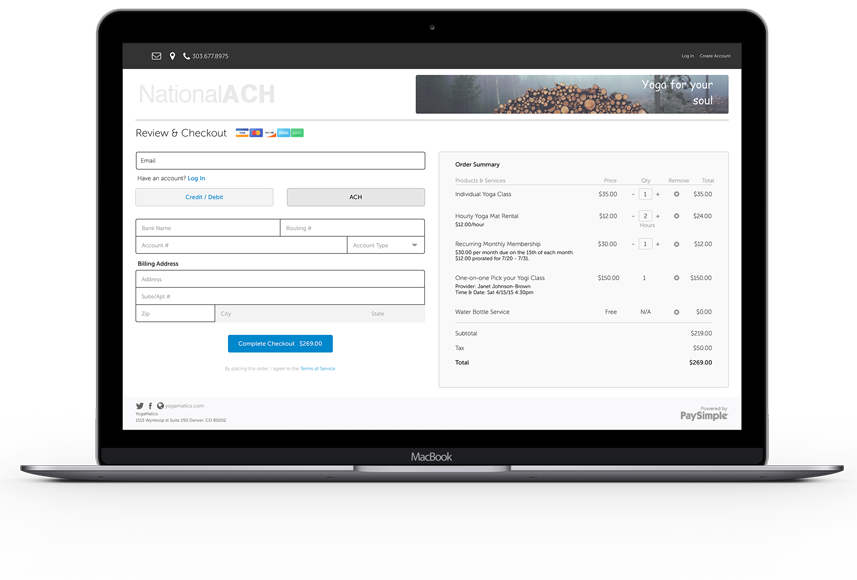RCC Payment Processing Risky for Banks
What is RCC?
RCC stands for remotely created checks. Sometimes called bank drafts, a RCC is created, based on the bank account information provided by the consumer, and is presumed to have been authorized by the consumer. However, a RCC does not bear the actual signature of the account holder.
Like a traditional paper check, RCC can be processed through Check 21 bank-to-bank image exchange, bypassing the ACH network which is commonly used for electronic funds transfers. It is also possible to clear RCCs through the ACH network because all of the necessary information will be contained in the file.
For payment processing, RCCs are most commonly associated with high risk merchant accounts. These merchants often have difficulty staying within NACHA mandated guidelines governing revoked and returns transactions that are cleared through the ACH processing network.
Reasons Banks Consider RCC Risky
Over the last few years, the use of RCC has attracted scrutiny from government agencies and the banking industry. Because an RCC does not have a consumer signature, the payment method has a greater potential for fraudulent transactions than paper checks. And since the transaction does not clear through the ACH network, a RCC transaction does not have the same monitoring and control procedures that are built into ACH processing.
RCC is still a legal payment method. RCCs are used for a myriad of commercial purposes and by a variety of industries.
If processors and banks carefully manage the risk associated with RCC transactions, the potential for fraud can be somewhat reduced. But, RCC is still a risky business for banks and third party processors. Many of those opposed to RCCs believe that the risk of fraud outweighs the commercial potential and urge that RCCs be banned
Fraud and RCC
Because there is no signature required on a check nor an authorization required as for ACH transactions, RCC is particularly vulnerable to fraud. For example, telemarketing companies have been fined by the FTC for creating bank drafts without customer authorizations. Processing companies that were processing RCC have been shut down for failing to perform adequate due diligence on merchants processing through them.
The Federal Trade Commission Telemarketing Sales Rule prohibits deceptive and abusive telemarketing acts or practices. The FTC considers telemarketing as criminals’ favored method for stealing from consumers’ bank accounts via RCCs.
Some third party processing companies market their ability to create electronic remotely created checks. These companies claim to obtain faster deposit and settlement, limit chargebacks, and avoid the ACH network. Third party processors are the customers of the bank, which ultimately bear the burden of processing RCC payments.
Contingent liabilities are a primary reason that some large banks will no longer process RCC transactions. And the banks that do process RCC banks are becoming more stringent in underwriting and requiring substantial due diligence prior to authorizing transmission of RCC transactions. This includes investigating third party processors and insisting on rigorous compliance when merchants are brought on board by the third party processors.
Penalties to Banks
RCCs avoids ACH unauthorized return monitoring and control procedures, while bypassing check law. This leaves Federal Reserve Banks and check clearing networks vulnerable for fraud. The responsibility for fraud is passed back to the sending financial institution (bank of first deposit) to recuperate any loss as a result of an unauthorized RCC transaction.
When a bank fails to conduct payments business with an appropriate level of due diligence, federal regulators have the authority to initiate an enforcement action requiring the institution to cease and desist processing.
If a bank fails to monitor its own payments activity and fraud has been committed using the bank’s payment services, a bank can be required to make whole all parties harmed by the transaction. And if a bank knowingly processes fraudulent transactions that affect interstate commerce, the bank can be subject to civil or criminal charges.
Conclusion
Although RCC have been misused in the past, tighter scrutiny has now made RCC processing safer for banks and merchants.
Many high risk merchants benefit from clearing transactions through electronic check processors. Giving the processing capacity required. While mitigating payment processing risk.
Are you a high risk merchant that wants to increase sales & profits with an echeck account?
Contact info@NationalACH.com today
